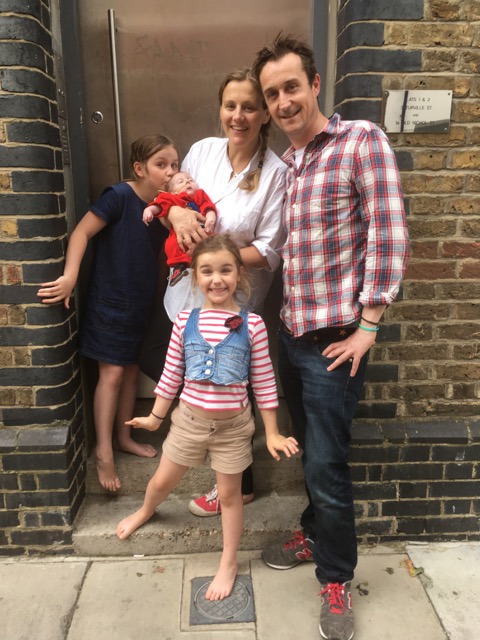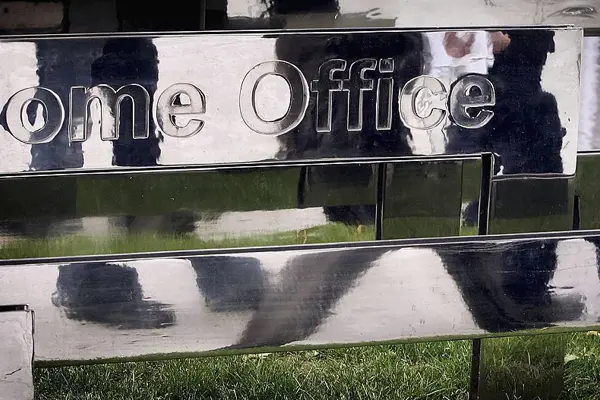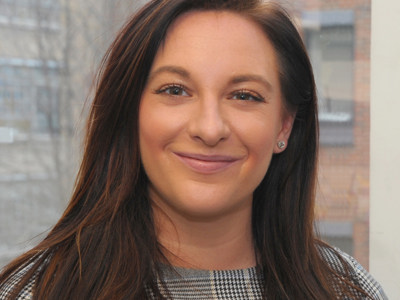Reflex DNA test failed to spot Edwards' syndrome in woman’s pregnancy
A mother has received a settlement after an experimental DNA test for fetal abnormalities in pregnancy failed to detect Edward’s syndrome in their baby boy.
Posted on 22 May 2022
Cosima Pole and Nick Stevens say they would have decided to end the pregnancy had Cosima received traditional tests which would have detected very severe disabilities and would have resulted in the couple being offered guidance on a termination at the Royal London Hospital.
Instead Cosima gave birth to their very severely disabled child, Digby at full term and he died aged 10 weeks in August 2016.
Barts NHS Health Trust, which administered the experimental test at 16 weeks and which also failed to detect any fetal abnormalities through a routine ultrasound scan at 20 weeks, has admitted and apologised for failings at the Royal London Hospital and the “devastating consequences” for Cosima and Nick.
The Reflex DNA test was developed and supplied by the Wolfson Institute of Preventive Medicine.
Cosima, who is now aged 46, was referred to the Royal London Hospital antenatal services with her third pregnancy in October 2015. As a 39-year-old who was taking medication for epilepsy, her pregnancy was noted as high-risk.

Cosima Pole, Nick Stevens and their family
Her bloods were taken for testing in November. The results of the usual combined test, which would have triggered chorionic vilious sampling or amniocentesis, were never supplied to Cosima and her doctors and the couple were not aware that they would not receive those results. Instead, the new experimental Reflex DNA test, which was not a recognised alternative to the combined test, and not the test recognised by the National Screening Committee, was used to test for trisomies. Cosima and Nick were not told that the use of the new test would delay a high-risk result.
Cosima received a letter in December which stated that no DNA cells could be found for Down’s, Trisomy 18 (Edwards’ syndrome) or 13 (Patau syndrome) and that she was considered very low risk for those conditions as the test had an accuracy rate of 99 per cent. As a result she was not offered chorionic vilious sampling or amniocentesis, which would have detected the trisomies.
A scan in January 2016 failed to detect any abnormalities in fetal development. Cosima was told that what could be seen appeared normal and measurements of the baby’s head, brain, heart and thorax could not be obtained. A second scan report stated the “heart appears normal”.
In May it was noted that the baby was considerably smaller than Cosima’s previous pregnancies. After further tests she was sent home.
When Digby was delivered by caesarean section in June, he was blue and floppy and was immediately taken to the special care baby unit.
Cosima was told that his congenital abnormalities may be related to her age and epilepsy medication but Edwards syndrome was later diagnosed.
Following Digby’s death, Cosima and Nick wanted to take action to ensure that changes were made at the Royal London. They approached the clinical negligence team at law firm Leigh Day where head of clinical negligence Suzanne White and solicitor Frankie Rhodes argued that Cosima and Nick were not provided with appropriate choices regarding screening or proper advice to enable them to make an informed decision about appropriate tests. If appropriate tests had been offered, abnormalities would and should have been detected and the parents should have been given advice about the continuation of the pregnancy.
If Cosima had been properly informed about the abnormalities that Digby suffered she would have requested a termination and would not have suffered the pain and distress of giving birth to a severely disabled child and caring for child who was going to die very young.
The parents would have considered the risk of Trisomies 18 or 13 and of any significant neurological or congenital disability. They were a very significant risk that neither would have been prepared to take.
The ultrasound in January 2016 should have detected Edwards syndrome as it is detected in 95 per cent of cases. Within three days of that scan an amniocentesis would have been performed and at that point Cosima should have been offered termination.
In a letter responding to Cosima and Nick’s legal claim, Barts NHS Trust confirmed there was a breach of duty in the care Cosima received during her pregnancy. They said Cosima was inappropriately counselled as to the appropriateness of the Reflex DNA Test and the risks associated with the test.
They accepted this meant the high risk of Trisomy 18 would have been missed. They accepted Cosima would have been offered chorionic vilious sampling or an amniocentesis and Edwards Syndrome would have been diagnosed and Cosima would have had a termination. Cosima would have avoided having to give birth to a baby who had serious disabilities and the death of the child 10 weeks later.
They confirmed that the trust has modified its procedures as a result of this incident.
Cosima Pole said:
“I am very proud in my belief that we have done the right thing in standing up for ourselves and fighting to make positive change. Anything that can drive that positive change, I would like to be involved in. Clearer communication between hospital and pregnant women and their partners, clearer information about informed consent is vital. Understanding the testing, and the tests being well explained to the families is vital. The hospital must ensure that safeguards are in place for results to be shared with families, and to ensure that all tests are completed to a satisfactory degree. Families need to understand what is being tested for, their risks and pathways.”
Leigh Day partner Suzanne White said:
“My client and her family have suffered a terrible tragedy and untold distress, as a result of the Trust’s failure to inform her of Digby’s disabilities during her ante-natal care. As set out in the letter admitting liability from the Trust, they acknowledge they gave my client inappropriate advice on the Reflex DNA Test and the associated risks. As a result my client was not able to make choices about her pregnancy and gave birth to a baby with serious disabilities who died 10 weeks later.
“This case illustrates the broader issue of the importance of informed consent for patients, after the groundbreaking case of Montgomery. This case has changed the landscape from paternalism by the medical profession, to informed decision making by the patient about the medical care they receive. Whilst NHSR statistics show that there has been an increase in clinical negligence cases as a result of Montgomery, I firmly believe this case is a driver for good practice by the medical profession, improving choice, patient rights and medical care for patients. It may even reduce clinical negligence claims in the future.”
Leigh Day solicitor Frankie Rhodes said:
“It has been a privilege to act for our brave client who is driving for much needed positive change in the healthcare system. Change is also urgently needed to address undue delays in the NHS legal claims system which meant this family could not achieve closure for years and have been constantly reminded of this unnecessary trauma.
“Even now, the whole family is still deeply affected by what happened and their case sheds light on the fact that NHS culture and dealings with NHS Resolution must be improved to avoid incurring needless costs and to ensure that justice can be achieved in a timely manner. To put the timescales into perspective, our client served her evidence on 14 May 2019 and the other side’s admission was received on 31 March 2020, with no settlement achieved until January 2022. This was very disappointing for the family and only added to their distress.”




